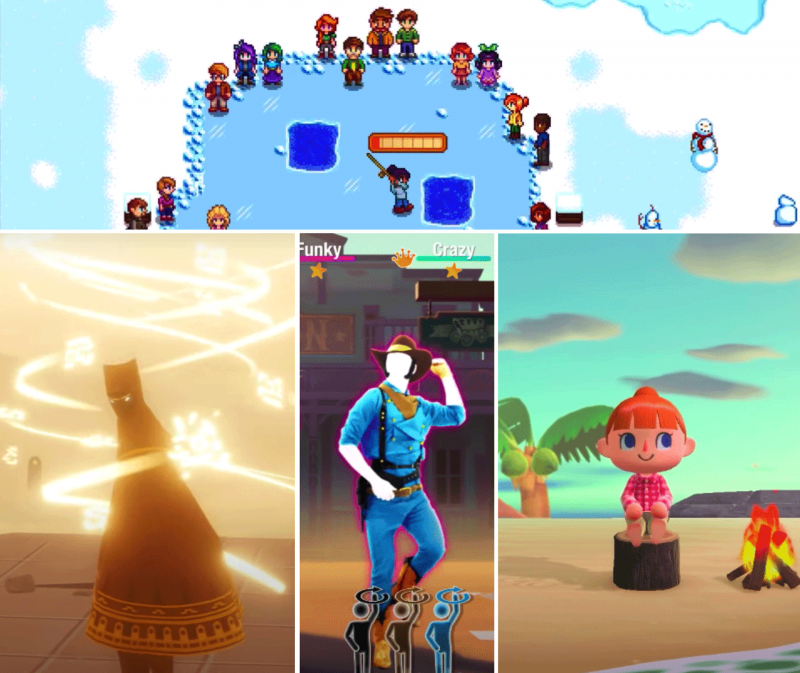In the world’s first history book, Herodotus recounts how the ancient Lydians faced a prolonged period of food scarcity. Months passed without relief and despair set in, spurring the desperate Lydians to implement an unusual solution. Life was organized according to a two-day schedule, where they fasted on the first day and played games to distract from hunger, while on the second day they ate and abstained from play. Herodotus writes that the people lived according to this pattern for eighteen years, survived the famine, and invented some of the games that we enjoy today.
Three thousand years later, we stand to learn much from the Lydians. Games might be a timely balm as we grapple with our own social crisis. French philosopher David Émile Durkeim believed that games are a cornerstone of human bonding, while their power to absorb and distract helps ease our thoughts from the troubles at hand. Also, digital games can simulate vast navigable virtual spaces, an attractive commodity when access to real world space is restricted. But, unlike the Lydians, we already have tens of thousands of games ready to go, many of which have been designed to dissolve physical distance.
As we adjust to a prolonged sojourn in the great indoors, the games included here may help ease the burden of confinement. Players can draw comfort from bridging distance through online collaboration, traveling the virtual world, sharing struggles, or getting a daily fitness fix, all without having to step outside.
Kind Words
Kind Words’ core mechanic is meaningful human contact. Players can anonymously write short letters to share their struggles or respond to others with supportive words. After the tutorial, all letters and responses are produced by real people. This little game with a big heart seems ideally suited to our current circumstances as it transcends space with its anonymous virtual network that encourages positive interactions, mutual comfort and support. It’s also a fun way for kids to exercise reading, writing and emotional intelligence through empathetic engagements. Not surprisingly, many recent letters address social distancing issues which grant ample opportunity to connect on the foundation of shared experience.
Journey
Doesn’t it feel like a good time for a mystical pilgrimage across the desert? Journey is a striking work of video game art where a player traverses a surreal desert landscape as they make their way to a distant mountain. The soothing soundtrack, austere expanses and calming rhythm of play are a powerful antidote to the doldrums of social isolation. The best part is that you are not alone. At every level, one might encounter another anonymous player with whom they can exchange magic scarves and form a temporary alliance. Communication is limited to avatar motion and nonverbal chimes or “pings.” Strangely, these constraints deepen the emotional connection between players as it impedes potentially toxic behavior. Journey is a powerful metaphor that binds inward and outward voyages, but perhaps the most relevant message it delivers is its persistent reminder that less is more.


